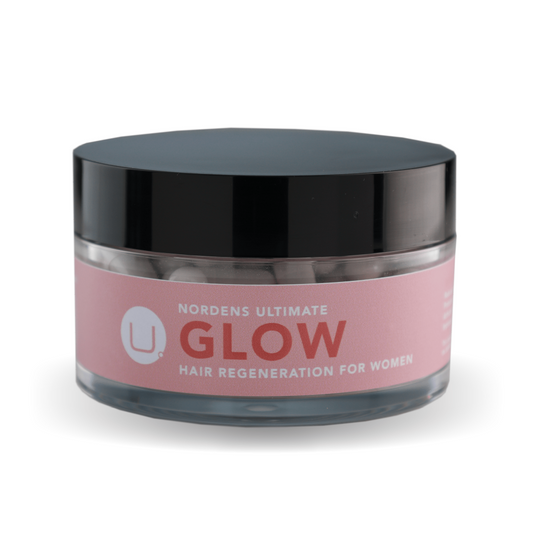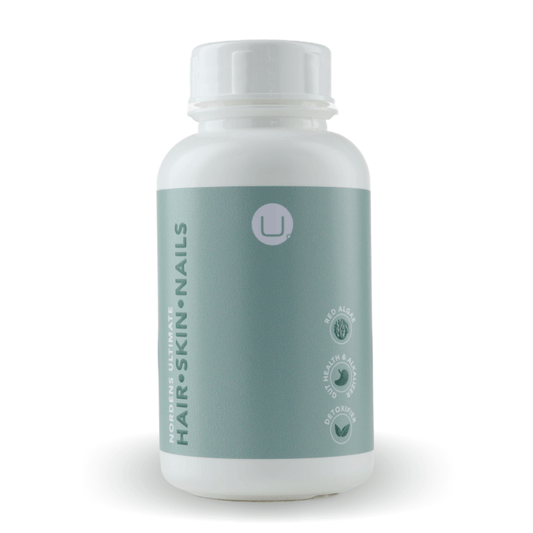“It may seem logical that if your skin is losing collagen, rubbing collagen on your face would help the problem, but unfortunately, the collagen molecule is too large to penetrate the skin. You are simply placing collagen on the surface, and this cannot change the skin’s structure.”
―
Between oral powders, serums, and creams, collagen is enjoying great popularity, and people are investing a lot of money in a bid to slow skin ageing. The controversy is not whether you need more collagen, it’s about how best to supply it to your body.
Have you been trapped into spending a fortune on powders, serums, and treatments? That ends today!
This is a tough bubble to burst, but someday, in the not-too-distant future, research will show that stimulating the body’s innate ability to produce more collagen is far superior to taking it orally or lathering it all over your skin via creams and serums.
Here’s what you need to understand about collagen.
What is Collagen?
Collagen is a protein found in blood vessels, bones, digestive systems, skin, and tendons. It is in abundant supply until the mid-twenties, whereafter, it starts to deplete. That is bad news for skin, bone, and joint health.
Paul Dean, MD, a San Diego-based dermatologist and creator of Skin Resource cosmeceuticals, makes a few salient points on this hot topic. He explains: ‘As we age we need to increase our [collagen] levels to slow down the aging process from the inside out.’
Beware of adding to collagen decline by a diet high in sugars, or by smoking, or excessive exposure to the sun, and by insufficient exercise.
More on this in a minute, but first, a quick fact check to bust some myths regarding the commercial push to use supplements, serums, and creams to get added collagen.
Collagen Powder and Supplement Review
Myth Buster #1: According to Dr. Dean, ‘your body won’t absorb the collagen [from supplements and drinks] as a replacement, and it will just pass through your system as a protein.’ Time to stop leaking your money out in the toilet, right?
If you're not vegan, there are still issues to consider when taking oral collagen supplements derived from animals. Scientists and doctors are concerned about the high levels of heavy metals in meat products.
‘Many supplements can cause allergic reactions since the supplements are usually derived from animal sources and your body may become sensitive to the foreign substance,’ confirms Dr. Dean.
Pitfalls of Topical Collagen
Myth Buster #2: Millions are spent by a gullible public on topical skin preparations containing collagen. According to Dr Dean, ‘Collagen applied topically to the skin will not replace missing collagen in the skin because the collagen molecule is simply too large to penetrate into the deep layers of the skin.’
For the skin to absorb molecules, they need to really small. Peptides, on the other hand, which are short strands of broken down collagen, might assist skin tone and texture to a lesser degree.
Fast Fact: Cell turnover is increased by retinol, a Vitamin A derivative, which stimulates collagen and elastin production.
Are you starting to get the drift? Let the secret be released: stimulating your body’s own collagen, keratin, and elastin are what spikes your body’s own collagen production. The upside here is that your body can both recognise and fully utilise all the collagen it needs.

How to Save A Fortune on Collagen - Stimulate your Body’s Innate Collagen Production
Now we’re talking! Rather than spending a fortune on collagen supplements that may or may not improve your skin's elasticity, there are a few things you can do to reduce collagen depletion without spending a cent (and some will even save you money!).
- Reduce Exposure to the Sun - stay out of the midday sun, and use good sunscreen because extended exposure to the sun will break down and retard your body’s collagen production.
- Eat Healthily - ‘Certain foods can increase collagen in our bodies,’ says Dr. Dean. Omega-3-rich fish, such as salmon, and avocados are high in omega-3s and vitamin E, which retard skin aging. Vitamin C is abundant in red vegetables such as red bell peppers and citrus fruits, which promote collagen production. An anti-aging diet should also include dark green vegetables and sweet potatoes (which contain high levels of vitamin A).
- Quit Smoking - you already know that if you cut smoking out of your life, your skin will reward you. Organic remedies to help you quit are where you should spend your hard-earned cash!
- Exercise - is another matter you also know you ought to set as a value in your life. Not only does exercise minimize risk of heart disease and diabetes, but new studies show that exercise itself, boosts the body’s natural collagen production.
Hot tip: The Nitric Dump 4- minute exercise routine leaves no excuse and may just save your life and your skin!
Use Natural Supplements that Actually Stimulate your Body's Collagen Production
Time for good news! Cures & Creams advocate a sensible, healthy lifestyle and are proud to have sourced natural supplements that work to stimulate your body to produce more collagen and keratin. We're delighted to bust the collagen myths but still offer you a better way to supply collagen to your skin and bones.
In summary: while most collagen creams and serums don't harm your skin, and might still be great moisturizers, don’t expect them to do much to increase your collagen production. The best thing you can do for your skin is simply to stimulate your body’s own production. Add to that by taking care of your body; eat intelligently, use sunscreen, and get adequate exercise daily.
Explore the Cures & Creams online store and get yourself stocked with the natural remedies that are just right for you and your loved ones.
Take advantage of running specials, reward points and repeat order subscription benefits.
Disclaimer: This article is for informational purposes only and does not constitute professional medical or psychological advice. Please consult with a qualified healthcare professional for personalized guidance.






